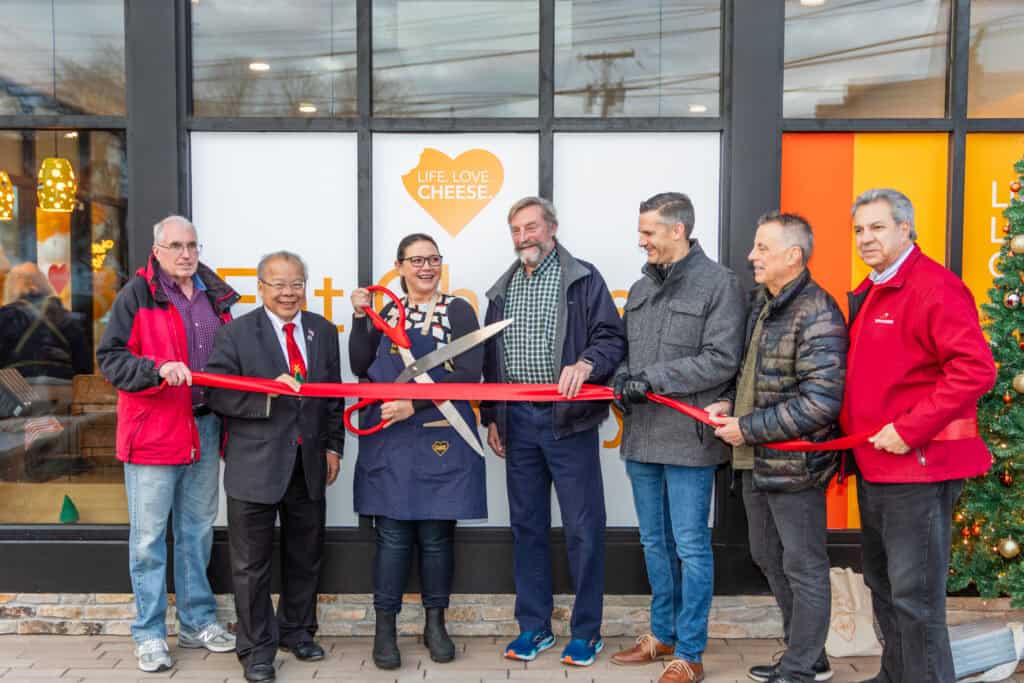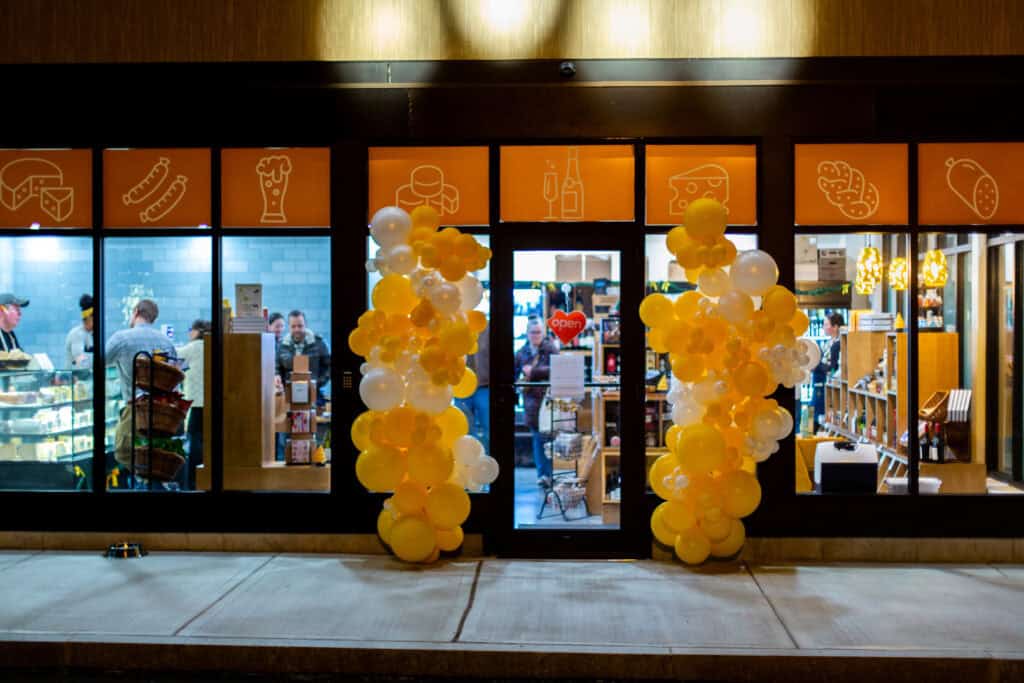Eat Cheese. Be Happy: An introduction to a blog series on opening a cheese shop

We had spent weeks and an unmentionable amount of money working with an architect before I thought to ask, “Don’t we need a produce sink in the shop’s kitchen?” I made the mistake of assuming the architect knew the health code requirements. I was wrong. And now we needed to find a way to squeeze more plumbing into an already crowded kitchen. Luckily, things were still on paper.
My journey to opening Life Love Cheese in December 2024, my first brick-and-mortar storefront in Wakefield, Massachusetts, started over ten years ago when I left my tech career and went to culinary school. Like many other mid-life career changers, I had a naive, rose-tinted idea of what leaving the corporate world to pursue my passion for food would be like. I knew I wanted to do something entrepreneurial when I left tech, but I still had a “climb the career ladder” mindset. I thought studying food policy and joining a think tank or becoming a consultant seemed like a respectable career path.
All those plans changed after I took the Artisan Cheeses of the World course at Boston University. The cheese industry hooked me, and there was no looking back.
While figuring out what my new career would look like, I staged in restaurants. I worked side gigs with festivals and food shows. I attended industry events. I taught classes for community education programs. I coordinated food programs for non-profits. I pitched hundreds of stories. I worked as a teaching assistant. I did food marketing. I worked my butt off and along the way, I met people from all corners of the food industry. More importantly, I’ve kept in touch with them.
I can attribute many of my “lucky breaks” to the relationships I’ve nurtured. The Artisan Cheese Classes and Culinary Classes I took so many years ago are a good example. Because I kept in touch with the course coordinators and instructors, they hired me as a culinary assistant for classes and I later connected some of those people to community education programs or hired them for events and festivals. When the teaching assistant for the Artisan Cheese Course moved on, those same people asked me if I wanted to take her place. While I took cheese classes at Sterling College and with Jasper Hill Farm, I helped shape the Artisan Cheese Course curriculum. Then, when Ihsan Ghurdal the former owner of Formaggio Kitchen retired from teaching the Artisan Cheese course, Boston University asked me to teach it and expand it.
Through these experiences, I’ve maintained connections with cheese professionals and cheesemakers and have tapped them for advice as I built my storefront. I’ve garnered ideas on topics big and small, ranging from how many people I should hire to asking what someone thinks about a sandwich recipe.
These relationships are the single most valuable part of my journey. I cannot overemphasize how important it is to nurture relationships across the cheese industry, with other food professionals, and within the small business community. Yeah, it’s sometimes scary to reach out to that old colleague from years ago and ask for a bit of help, but the cheese industry is full of generosity and curiosity. People are often more than willing to point you in the right direction.
Whether dealing with architects, finding a location, navigating permitting, or picking out products, I often felt like I was reinventing the wheel. Along the way, I’d stop and think, “Surely, someone has gone through this before.” Now, hot off opening day, I have so many lessons fresh in my mind. I want to preserve them for opening future Life Love Cheese locations, but I also figured they’re useful for other aspiring cheese shop owners.
That’s the premise behind this blog— a monthly dive into the roller coaster ride of opening an artisan cheese shop. There’s nothing especially unique about opening a cheese shop over other retail spaces, I can’t say I have all the right answers, and I’m sure some of these posts will have other cheese shop owners scratching their heads wondering, “What the heck was Kimi thinking?” But! My hope is that these lessons will help people feel less lonely in the labyrinth of potential missteps of opening a store.




